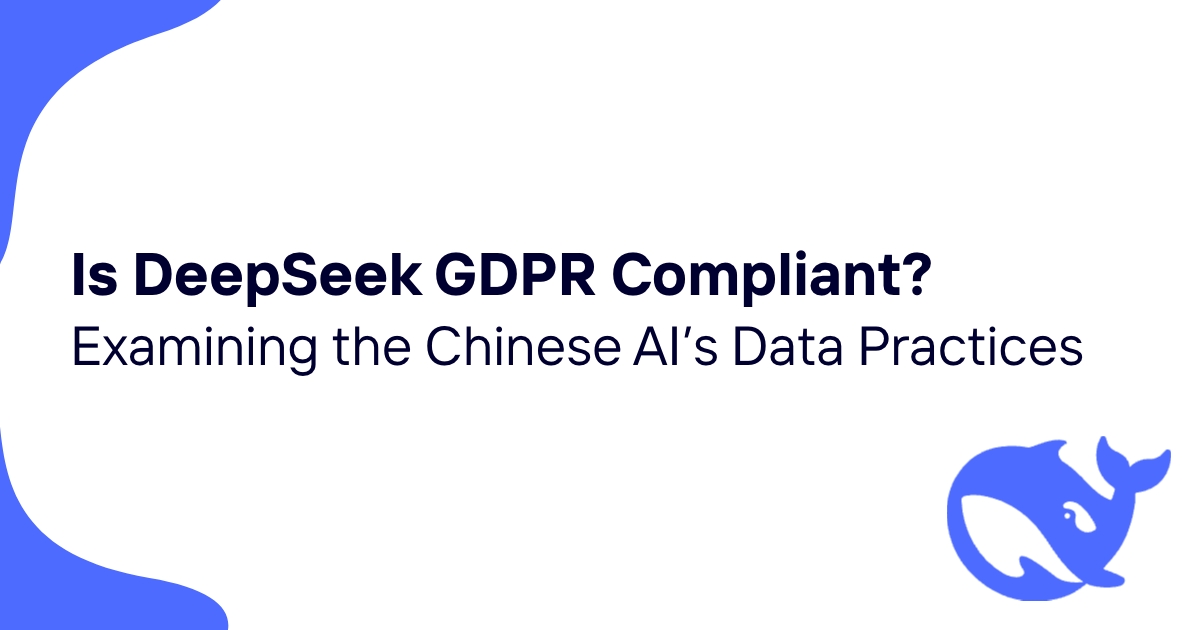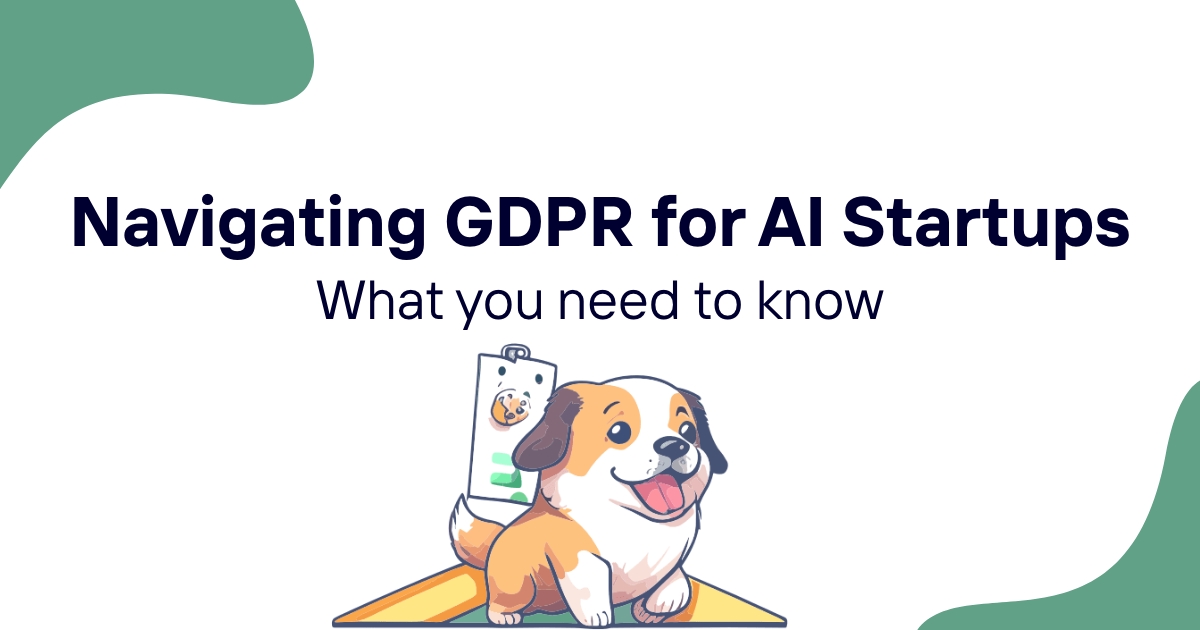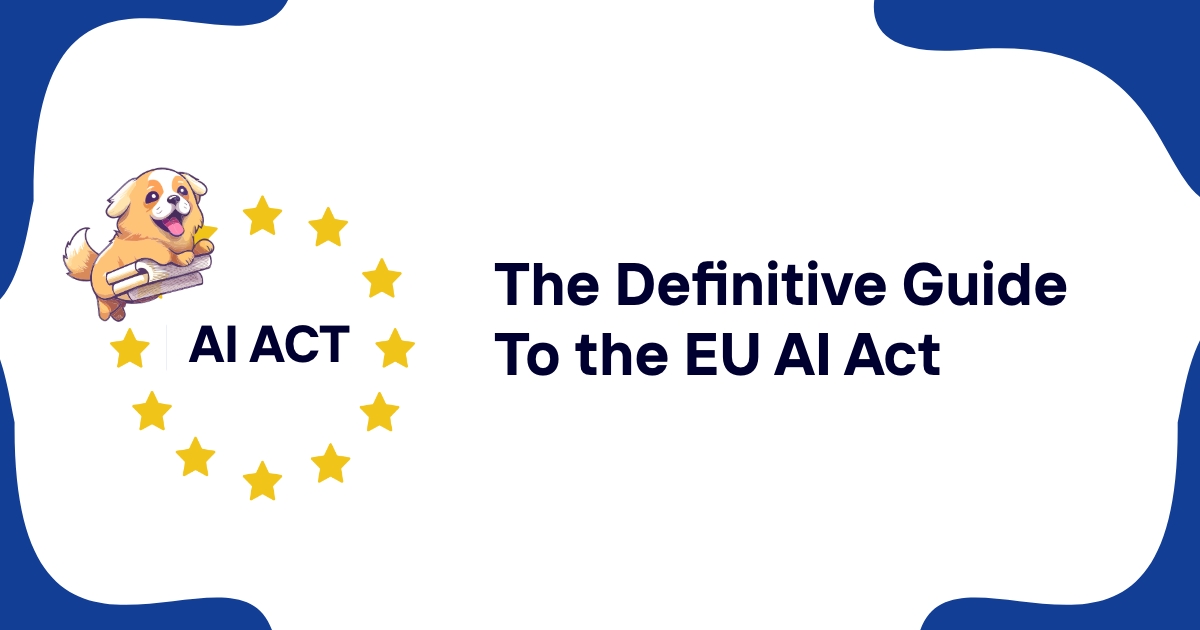Table of Contents
- Introduction
- What is DeepSeek AI?
- Key GDPR Requirements
- DeepSeek's Data Collection and Processing
- Transparency and User Rights
- Data Transfers to China
- Cybersecurity Concerns
- Comparison to Other AI Providers
- Potential GDPR Violations
- Regulatory Scrutiny and Investigations
- Steps DeepSeek Could Take to Improve Compliance
- Implications for EU Users and Businesses
- The Broader Context: AI Regulation in the EU
- Conclusion
Introduction
The rapid rise of artificial intelligence has brought immense potential, but also significant privacy and data protection concerns. As AI systems become more sophisticated and widespread, regulators around the world are grappling with how to ensure these technologies respect individual rights and comply with existing laws.
In the European Union, the General Data Protection Regulation (GDPR) sets strict rules for how personal data can be collected, processed, and transferred. Any company offering services to EU residents must comply with the GDPR's requirements - regardless of where that company is headquartered.
This brings us to DeepSeek, an emerging Chinese AI company that has recently made waves with its powerful language models. But as DeepSeek gains traction in Europe, serious questions are being raised about its compliance with EU data protection law.
In this article, I'll take a deep look at DeepSeek's data practices and assess whether the company appears to be following GDPR requirements. As an expert in data privacy regulations, I have some strong opinions on this matter that I'll share throughout. Let's dive in and see how DeepSeek measures up.
What is DeepSeek AI?
Before we get into the nitty gritty of GDPR compliance, it's worth taking a moment to understand what DeepSeek actually is.
DeepSeek is a Chinese artificial intelligence company that has developed large language models (LLMs) similar to ChatGPT or GPT-4. Their flagship model, DeepSeek-67B, was trained on a massive dataset and can engage in human-like conversations, answer questions, and generate text across a wide range of topics.
What's gotten people excited (or concerned, depending on your perspective) is that DeepSeek claims to have created an LLM with capabilities rivaling the top U.S. models, but at a fraction of the cost. They say they only spent around $5 million training DeepSeek-67B, compared to the billions poured into models like GPT-4.
This has led to a lot of buzz about DeepSeek potentially disrupting the AI industry. But it's also sparked questions about how exactly they achieved such results so cheaply, and whether corners were cut when it comes to data protection and ethics.
With DeepSeek now available to users in Europe, EU regulators are taking a close look at the company's practices. So let's examine how well DeepSeek appears to align with key GDPR requirements.
Key GDPR Requirements
The GDPR lays out several core principles and requirements that organizations must follow when processing personal data of EU residents. Some of the key obligations include:
- Lawfulness, fairness and transparency
- Purpose limitation
- Data minimization
- Accuracy
- Storage limitation
- Integrity and confidentiality
- Accountability
Companies must also have a valid legal basis for processing personal data, such as consent or legitimate interests. The GDPR grants data subjects various rights, including the right to access their data, have it corrected or deleted, and object to certain types of processing.
For transfers of EU personal data to countries outside the European Economic Area (EEA), additional safeguards are required. This is especially relevant for DeepSeek, given that the company is based in China.
With these key principles in mind, let's look at DeepSeek's actual practices based on publicly available information.
DeepSeek's Data Collection and Processing
One of the first things I look at when assessing GDPR compliance is how transparent a company is about its data collection and use. Unfortunately, DeepSeek falls short in this area.
The company's privacy policy is surprisingly bare-bones. It states that DeepSeek collects user information like email addresses and chat logs. But there's very little detail on exactly what data is collected, how it's used, or how long it's retained.
Even more concerning - the privacy policy makes no mention whatsoever of GDPR or EU data protection rights. This is a major red flag, as any company operating in the EU should explicitly address how it complies with GDPR.
There's also a lack of clarity around whether DeepSeek is using personal data to further train and improve its AI models. Many AI companies do this, but under GDPR it requires explicit consent from users. DeepSeek doesn't appear to be obtaining this consent.
I couldn't find any information about DeepSeek appointing a Data Protection Officer or maintaining records of processing activities - both GDPR requirements for companies processing data on a large scale.
Overall, DeepSeek's approach to data processing seems to lack the transparency and accountability that GDPR demands. They need to be much more upfront about their practices.
Transparency and User Rights
The GDPR grants EU residents various rights when it comes to their personal data, including the right to access, correct, and delete their information. Companies are required to facilitate these rights and respond to user requests in a timely manner.
Again, DeepSeek's policies fall short here. I couldn't find any information on their website about how users can exercise their GDPR rights or submit data subject access requests. There's no clear process for having your data deleted if you no longer want to use the service.
The company also doesn't appear to provide users with an easy way to download their personal data or chat logs. This lack of data portability could be another GDPR violation.
Transparency is a core principle of GDPR, but DeepSeek's operations remain largely opaque. They need to be much more forthcoming about how they handle user data and empower individuals to control their personal information.
Data Transfers to China
One of the thorniest GDPR compliance issues for DeepSeek revolves around international data transfers. The company is based in China and appears to be storing EU user data on servers located there.
This is problematic because China is not considered to provide an adequate level of data protection under GDPR. To legally transfer personal data from the EU to China, companies need to put in place additional safeguards like Standard Contractual Clauses (SCCs).
However, DeepSeek's privacy policy makes no mention of such safeguards. There's no information about what legal mechanism they're using to facilitate these transfers or what protections are in place once the data reaches China.
This is a major concern given China's invasive surveillance laws, which could potentially compel DeepSeek to hand over EU user data to Chinese authorities. Without proper safeguards, this puts Europeans' privacy at serious risk.
I would strongly advise EU users to think twice before sharing sensitive information with DeepSeek until the company provides more transparency around its international data flows.
Cybersecurity Concerns
Beyond the legal issues, there are also significant cybersecurity risks to consider with DeepSeek. Some concerning vulnerabilities have already been uncovered by researchers.
For instance, DeepSeek was found to be susceptible to prompt injection attacks that could potentially allow malicious actors to manipulate the AI's outputs. This could lead to the system disclosing sensitive information or executing unauthorized commands.
There have also been reports of DeepSeek generating malicious code and instructions for cyberattacks when prompted, something most responsible AI companies strictly prohibit. This raises questions about DeepSeek's safety controls and content filtering.
The company's cheap training methods may have come at the cost of robust security measures. Without more transparency from DeepSeek, it's hard to assess how well-protected user data really is.
Comparison to Other AI Providers
To put DeepSeek's practices in context, it's worth comparing them to other major AI companies operating in the EU.
OpenAI (makers of ChatGPT) and Google, for instance, have detailed GDPR compliance statements. They clearly explain what data they collect, how they use it, and how users can exercise their rights. They've also implemented additional safeguards for international transfers.
Microsoft has gone even further by hosting EU user data exclusively on servers located within Europe. This avoids the thorny issue of transfers to third countries altogether.
DeepSeek lags far behind these competitors when it comes to GDPR compliance and transparency. While no AI company is perfect, the stark contrast highlights just how much work DeepSeek needs to do to meet EU standards.
Potential GDPR Violations
Based on the available information, there are several areas where DeepSeek appears to be falling short of GDPR requirements:
- Lack of transparency about data collection and processing
- No clear process for users to exercise their data rights
- Insufficient safeguards for international data transfers
- Failure to obtain proper consent for data processing
- Lack of appropriate security measures
- No appointed Data Protection Officer or records of processing
Any one of these issues could potentially result in GDPR fines. The fact that there are multiple areas of concern makes regulatory action seem increasingly likely.
Regulatory Scrutiny and Investigations
EU data protection authorities are already taking notice of DeepSeek's practices. The Italian data protection agency, Garante, has launched an official investigation into the company.
Garante has given DeepSeek 20 days to provide detailed information about its data collection, storage, and processing activities. The agency is particularly concerned about the transfer of EU personal data to China.
Other EU regulators are likely to follow suit. The European Data Protection Board (EDPB) has indicated it's monitoring the situation closely.
This level of scrutiny is not surprising given the novelty and power of large language models. Regulators want to ensure that fundamental rights are protected as these technologies become more widespread.
DeepSeek would be wise to take these investigations seriously and make significant changes to its data practices. The alternative could be hefty fines and potentially being barred from operating in the EU altogether.
Steps DeepSeek Could Take to Improve Compliance
If DeepSeek wants to continue offering its services to EU users, it needs to take swift action to address these GDPR concerns. Some key steps the company should consider:
- Revise its privacy policy to explicitly address GDPR compliance and user rights
- Implement a clear process for handling data subject access requests
- Obtain explicit consent for any use of personal data to train AI models
- Put in place appropriate safeguards (like SCCs) for data transfers to China
- Consider hosting EU user data on servers located within the EU
- Appoint a Data Protection Officer and maintain records of processing
- Conduct a thorough Data Protection Impact Assessment
- Improve security measures and content filtering
- Be more transparent about its data practices overall
Taking these actions would go a long way towards demonstrating good faith efforts at GDPR compliance. But DeepSeek needs to move quickly before regulatory action escalates.
Implications for EU Users and Businesses
So what does all this mean if you're an EU resident or business considering using DeepSeek?
For individual users, I'd recommend exercising caution. The lack of transparency around data practices means you can't be sure how your personal information is being used or protected. Until DeepSeek clarifies its policies, it may be safer to stick with AI providers that have clear GDPR compliance measures in place.
For businesses, the stakes are even higher. If you use DeepSeek to process customer data, you could be exposing yourself to significant GDPR liability. Remember that under GDPR, both data controllers and processors can be held responsible for violations.
Organizations have a duty to conduct due diligence on their service providers and ensure they have appropriate data protection safeguards. Based on publicly available information, DeepSeek doesn't seem to meet that bar currently.
My advice to EU businesses would be to hold off on adopting DeepSeek for now, at least until the company addresses these compliance issues. The risks simply outweigh the potential benefits at this stage.
The Broader Context: AI Regulation in the EU
The DeepSeek situation highlights the broader challenges of regulating AI in a globalized world. As powerful AI systems are developed by companies around the globe, ensuring they adhere to EU data protection standards is becoming increasingly complex.
The EU is taking steps to address this with the upcoming AI Act, which will impose additional requirements on high-risk AI systems. But there are still open questions about how to effectively enforce these rules on companies based outside the EU.
This regulatory landscape is rapidly evolving. Companies developing AI technologies need to stay on top of changing requirements and proactively build compliance into their systems from the ground up.
For EU policymakers, cases like DeepSeek underscore the need for strong enforcement mechanisms and international cooperation on AI governance. Protecting EU residents' fundamental rights in the age of AI will require ongoing vigilance and adaptation of regulatory frameworks.
Conclusion
Based on the available evidence, DeepSeek appears to fall well short of GDPR compliance in several key areas. The company's lack of transparency, insufficient safeguards for international transfers, and apparent disregard for user rights are deeply concerning.
While DeepSeek's AI capabilities may be impressive, that doesn't excuse cutting corners on data protection. EU residents deserve to know how their personal information is being used and have confidence that it's being adequately protected.
As regulatory scrutiny intensifies, DeepSeek faces a critical choice. They can either make dramatic changes to bring their practices in line with GDPR, or risk being shut out of the European market entirely. The coming months will likely prove pivotal for the company's future in the EU.
For businesses aiming to leverage AI while maintaining GDPR compliance, solutions like ComplyDog can be invaluable. ComplyDog offers comprehensive GDPR compliance tools tailored for software companies, helping to navigate the complex landscape of data protection regulations. With features for data mapping, consent management, and breach reporting, ComplyDog can significantly reduce compliance risks when adopting new technologies.
The DeepSeek case serves as a stark reminder of the importance of prioritizing data protection and privacy, even in the face of exciting technological advancements. As AI continues to evolve, responsible development that respects fundamental rights must remain paramount.

















